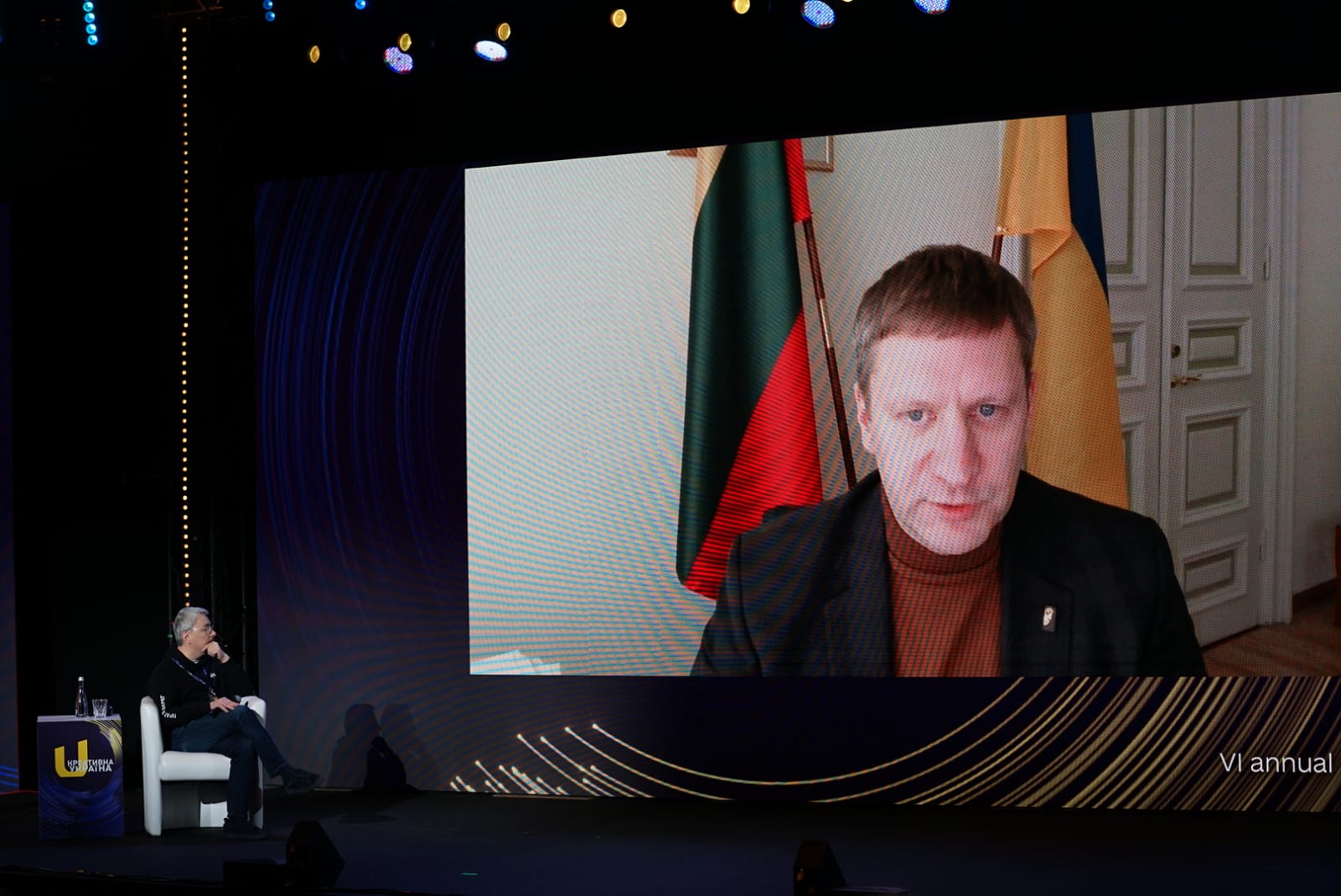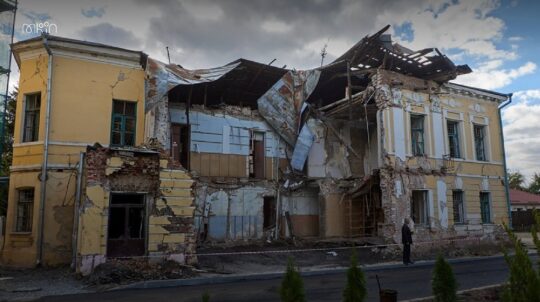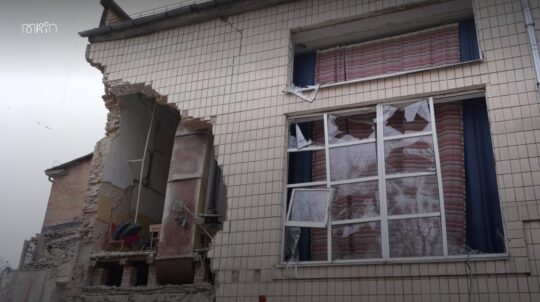As part of the 6th Annual International Forum “Creative Ukraine: The Power of Resilience” 2022, a discussion was held on the topic “Partners of development of culture and creative industries of Ukraine”.
The participants of the first module were:
- Piotr Glinski, Minister of Culture and National Heritage of the Republic of Poland;
- Simonas Kairys, Minister of Culture of the Republic of Lithuania;
- Nicholas Thomas, British Council Country Director;
- Mariya Gabriel, European Commissioner for Innovation, Research, Culture, Education and Youth.
Oleksandr Tkachenko, Minister of Culture and Information Policy, moderated the conversation.

Piotr Glinski was the first to speak. He emphasized that today the “Creative Ukraine: The Power of Resilience” forum is a reflection of the support and friendship between our countries.
“Poland continues to actively support Ukraine. We want to point out the spirit of Ukrainians, the spirit of resistance. I assure you, we will provide any help we can so that Ukrainians continue to resist this barbaric invasion. We understand that it is not only necessary to support people, but also to help preserve objects of Ukrainian cultural heritage. And for this, we involve Polish cultural institutions to help Ukrainian cultural centers. Such a cultural center coordinates work to ensure and continue cooperation with Ukrainian artists. So far, our center has already involved more than 100 Ukrainian cultural centers in its work,” said the Minister of Culture and National Heritage of the Republic of Poland.

He added that Poland will continue to support the Ukrainian government in the field of further digital reform of Ukrainian authorities.
“Culture is the main driving force of any society, and it is very important to ensure its development and cultural heritage. From our side, we will support efforts to digitize such objects of cultural heritage, because this is precisely what supports the sense of national identity. In addition, our efforts are also aimed at countering disinformation. We will always be ready to help the Ukrainian state in solving its most urgent needs,” summarized Piotr Glinski.
Simonas Kairys, Minister of Culture of the Republic of Lithuania, said that he is very glad that Ukraine sees Lithuania as a partner that supports culture and creative industries: since the beginning of the war, cultural ties between the countries have become even closer, even more active, and new projects have been launched.

“Every exhibition, performance or concert that takes place in the world is like a protest, it is a living confirmation that Ukraine cannot be defeated. We will continue to support the culture and creativity of Ukrainians, especially those who live in Ukraine. Our task is to make Ukrainian culture sound powerful everywhere. We supported the creation of a joint European fund for the support of culture of Ukraine. The Lithuanian government is also working on 4 pilot projects, and at the next stage we will include Ukrainian cultural projects, through which assistance will be provided to Ukrainian artists and cultural centers,” said Simonas Kairys.
Nicholas Thomas, British Council Country Director, said that Britain has supported the Ukrainian cultural community since independence. After the Revolution of Dignity, cooperation became even more active, a number of new projects were launched together with new reformed institutions.

“We understand that this is the war to destroy your identity. Therefore, we naturally increased the volume of our support and assistance. Initially, it was of a short-term nature, but now we are looking at it for a long-term perspective for reconstruction and solving other needs within the framework of joint cultural projects“, said Nicholas Thomas.
According to him, the main focus of the British Council’s work in Ukraine after February 24 is the UK-Ukraine cultural seasons. The name of one of these seasons is “Rethinking the Future”, as well as the themes of such cultural seasons – pluralism, the importance of the creative sector, freedom of speech in a democratic society, etc.
“In June of this year, we launched cultural seasons and during this time in Britain we held many festivals and other artistic events. Among the main ones, it is worth noting the “Cultural Dialogue”, which was held at the cultural summit in Edinburgh: digitized 5-6 museum mosaics, which were destroyed during the Russian invasion, were presented in the Scottish Parliament. We also held the Kyiv stage festival “Bouquet” in Oxford at the end of September,” said Nicholas Thomas.
He added that these are just some of the main events that were held as part of the cultural seasons. According to him, such seasons will be held until the spring of 2023. A new program to support Ukrainian heritage is also currently being developed.
The last speaker was the European Commissioner for Innovation, Research, Culture, Education and Youth, Mariya Gabriel, who, according to Oleksandr Tkachenko, agreed to coordinate the assistance of European countries in the field of creative industries and culture in general.

“After February 24, we showed with concrete actions what we can do. First of all, immediately after the invasion, I proposed a project that would support the work of Ukrainian cultural organizations in joint projects in Europe. Starting next year, Creative Europe will provide 5 million euros to support small projects, artists who will be able to represent Ukrainian culture in Europe. It will also provide an opportunity to integrate Ukrainian refugees through cultural projects and increase their skills in cultural management. Secondly, a new support scheme for artists and professionals who remained in Ukraine or are abroad was recently launched. Thirdly, next year we will initiate new measures within the framework of the European plan to support culture, which will be fully aimed at protecting Ukrainian cultural heritage and providing assistance to the Ukrainian creative sector,” said Mariya Gabriel.
As a conclusion, she emphasized that these three announced projects are a confirmation that Europe will support cultural ties between Ukraine and the EU.

